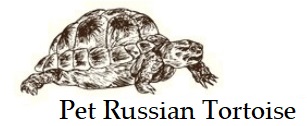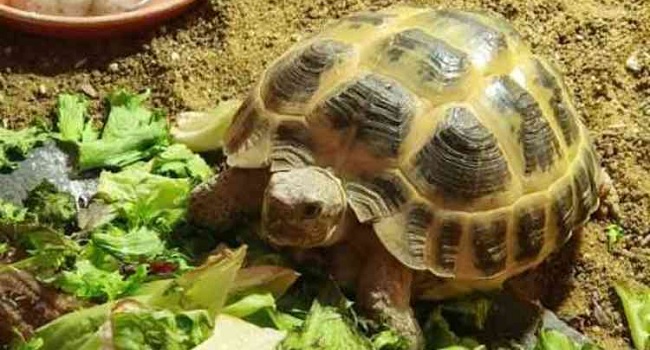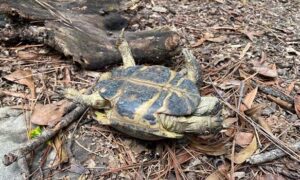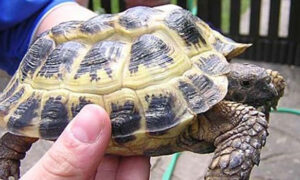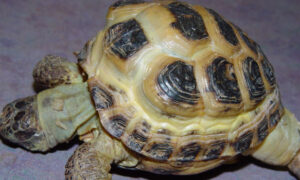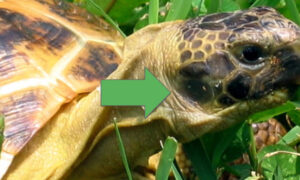Healthy Russian tortoise can go months without eating, however if you notice changes in your tortoise’s appetite and overall behavior, it’s important to try to diagnose and fix any issues. In the meantime, continue offering fresh foods daily and ensure the enclosure is warm enough.
Try different foods if you’re able to. Many keepers have had success getting a tortoise to eat by introducing Mazuri pellets. There’s something about the smell of moistened Mazuri that entices tortoises to eat it.
Some of the common causes of a Russian tortoise not eating include.
Tortoise Doesn’t like the Food
It could be as simple as your tortoise doesn’t like what you’ve offered. Offer something that you know your tortoise loves, like his favorite flower or a commercial tortoise pellet. This should hopefully get your tortoise eating again.
Waking Up From Hibernation
If you hibernate your Russian tortoise, it can take some time for him to wake up. And in the meantime, your tortoise will prioritize hydration over eating. Ensure that your Russian tortoise has plenty of water available. The tortoise will start eating again when it is fully hydrated. In the meantime, offer bits of food with a high water content for a little bit until the tortoise fully wakes back up and begins eating regularly.
Tortoise is Too Cold
Russian tortoises require heat to properly digest food and remain active. The ambient temperature should average in the mid- to low-70’s°F with a basking area between 95-100°F. If the tortoise is in a cold environment for a long period of time, the body will slow down, causing it to reduce or stop eating.
Full / Constipated
If a Russian tortoise is backed up, it will naturally stop eating until his body has digested what’s in the belly. Wait your tortoise out until he’s ready to eat again. Typically, it can be a 2 or 3 days delay until the tortoise may be ready to eat again. Try warm soaks to help along any constipation issues.
New Tortoise
New Russian tortoises often need time to adjust to their new habitat. It’s not uncommon for new tortoises to not eat for a few days to a week, sometimes more, while they adjust. Continue offering fresh foods daily.
Stress
Stress can come from a variety of causes. The most common can be bullying from other tortoises or a habitat issue.
If you have multiple tortoises in an enclosure, one tortoise may be bullying another one, causing stress and lack of appetite. One tortoise may even be eating all the good food and leaving the “nasty” food for the other tortoise, who doesn’t want to eat it.
As for husbandry concerns, it could be as simple as not having enough shelter. Even just one tortoise should have at least two hides. If you have one on the warm side, there should also be one on the cooler side. If the tortoise is looking for a cool dark place to retreat and doesn’t have one, it could become stressed. Depending on the temperatures if the tortoise doesn’t have a place to cool off, it may stop eating because it’s overheating.
Illness
If you feel like everything is perfect in the enclosure and diet and your Russian tortoise is not eating, it’s important to consider illness could be the cause. There are a few common illnesses that could cause a tortoise not to eat.
- Intestinal Parasites or Worms – Depending on the severity of worms or parasites, your tortoise may stop eating. If you think that your tortoise may have internal parasites, it’s important to consult a reptile veterinarian for a test.
- Respiratory Infection – There are different types of respiratory infections. Most are caused by temperatures that are too cold. However regardless of what type of respiratory infection your tortoise may have, it will cause a lack of appetite.
- Stomatitis – Stomatitis is a mouth infection that can spread into the throat, causing sores making eating uncomfortable and hard to do.
